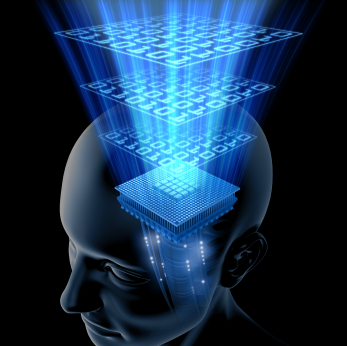Causes of Disease

If you browse through medical textbooks a plethora1 of diseases and medical conditions are described and meticulously categorized. Likewise, there are multitudes of tests listed so that each person’s group of symptoms can be classified and placed in the proper category with the proper name. What you’ll notice on close inspection, however, is that comparably few of these diseases, especially the chronic or severe conditions, actually have a known cause listed. Attempting to treat any problem that you don’t know the cause of is extraordinarily limited with regards to long term success.
The approach usually taken is to say that there is a lack of something produced in the body and then try to synthesize that “something” in the laboratory and give it to the person in the form of drugs and that then is the solution to the problem. This is tantamount2 to observing that your son has no money and then fixing the problem by constantly giving the son money. It truly isn’t fixing the problem at all. The question that needs to be asked is “why isn’t the son making any money on his own?” If the body isn’t producing something correctly or in general isn’t functioning correctly, the reason for this is what needs to be addressed. Often genetics are given as the reason. Though there are some truly genetic conditions like Down’s Syndrome or Tay-Sachs disease3, very, very few of the conditions attributed to genetics have actually had genes located that are directly related to the specified condition. Most are based on familial tendencies, in other words they tend to run in the same families. This, of course, could be a lot of things. In most conditions of this sort the person did not exhibit any signs of the condition when they were younger. When they became older the condition started expressing itself. Did the genes change? I don’t think so. There must have been other factors involved instead of just genes. I think the label of genetic cause is frequently used because it makes a lot of people happy. The patient is happy because he no longer has to be responsible for the condition and change anything with regards to lifestyle. The drug companies are happy because the drugs used to handle the symptoms are now the only (and very profitable) solution, and the doctors are happy because now they have a patient who has to come in for life to keep getting the prescriptions.
Actual causes of disease are relatively few. A cause of disease could be simply stated as anything that interferes with a normal function in the body. Something is not being produced or some action is not being performed because of some interfering factor. Any one cause has the ability to create many, many different diseases and conditions depending on how and where this causal factor is affecting the body. Take for example, a case where a person has a harmful chemical accumulated in his system. If this chemical is interfering with the function of the thyroid, this person may receive a medical diagnosis of hypothyroidism. If this chemical is affecting the stomach, he may be told he has gastritis. If it is affecting the joints, it may be called arthritis, the bowel – – colitis, kidneys – – nephritis and so on. In this particular example, they all would have the same cause, chemical poisoning. In fact, it is relatively rare for the actual causes of disease to only affect one area of the body. They usually affect multiple areas, you just notice them first in one area. If local symptoms only are addressed and the cause ignored, you can expect problems with other areas soon to follow. (If drugs are used, other symptoms are assured from side affects alone.) It’s understandable why patients get frustrated when doctors treat the symptoms of a specific area and they still find their general health deteriorating.
Simply stated, diseases are caused from one or a combination of the following factors:
| Infection | Allergy | Subluxation |
| Nerve Damage | Physical Insult and Injury | Chemical Toxins |
| Biological Toxins | Heavy Metal Poisons | Radiation |
| Lack of Sleep and Rest | Bad or No Nutrition | Lack of Exercise |
| Genetics | Mental & Spiritual Stress |
On further inspection, this list could be even further reduced. Infection and allergies are secondary to something else that has weakened the body. Structural misalignment (subluxation) and nerve damage are actually types of physical damage so this leaves:
| Physical Insult & Injury | Chemical Toxins | Biological Toxins |
| Heavy Metal Poisons | Radiation | Lack of Sleep and Rest |
| Bad or No Nutrition | Lack of Exercise | Genetics |
| Mental & Spiritual Stress |
Chemical toxins, biological toxins and radiation are all types of poisoning. Poisons and physical insult break down things in the body. Good nutrition, exercise, sleep and rest and genetics all build things up in the body. (Mental and spiritual affect both.) So the simplicity of what we are looking at with disease is too much breaking down and not enough building and strengthening. If we wanted to wax philosophic we could say it boils down to the old chaos/entropy versus life/order.
To handle the causes of disease in the body, the following procedures would therefore be sane approaches:
Change of environment either by relocation or isolating harmful or dangerous factors and removing them.
Nutrition and procedures to remove poisons from the body.
Physical corrections of structural misalignments and structural damage.
Good nutrition to provide proper raw materials for healing and normal function.
Exercise.
Adequate sleep and rest.
Competent mental and spiritual counseling, ethical and clean living.
If you were to take all of the different organs and tissues in the body, multiply this by all the different ways that the functions of these tissues could be interfered with, multiply this by all the different symptoms that could manifest from each organ and tissue malfunction, and then look at all the different possible combinations of the above, this would tell you how many diseases or disease syndromes that are possible.
The reality is that this current approach of classifying symptoms and effects of malfunction in order to handle disease, adds extraordinary complexity and confusion to the scene and is extremely limited with regards to application. The truth is, barring a true genetic condition, if a body is given a good environment, including a positive mental and spiritual environment, excellent nutrition, rest and exercise, the body would function fine. Only when these conditions are interfered with do we see problems develop. Hence, the simplicity is that the above factors are the true causes of disease.
In order to have a true health approach you have to go back to basics. You have to look at what it takes for the body to function correctly and you have to look at what can get in the way of the body functioning correctly. Only by looking at these basics do you stand a chance at restoring and maintaining function in the body. An approach that worked towards these two ends, supplying the things that the body requires to function correctly and removing those things that interfere with normal function (and healing) would actually be a health care approach.
Determining which of these causes are affecting your body and what you can do to correct them is what we do with Cause Point Correlative Testing. Because the true causes are addressed, body conditions, no matter what name is placed on them, get better, as amazing as it sounds. If you know someone who has a malfunctioning body, have them call (260) 459-6160 (Ft. Wayne) for an appointment.
Dr Murdock
1 plethora – an excessive quantity or fullness.
2 tantamount – equivalent in value or meaning .
3 Tay-Sachs disease – a hereditary disorder caused by the absence of an enzyme needed to break down fatty material, marked by buildup of lipids in nervous tissue, and causing death in childhood.











